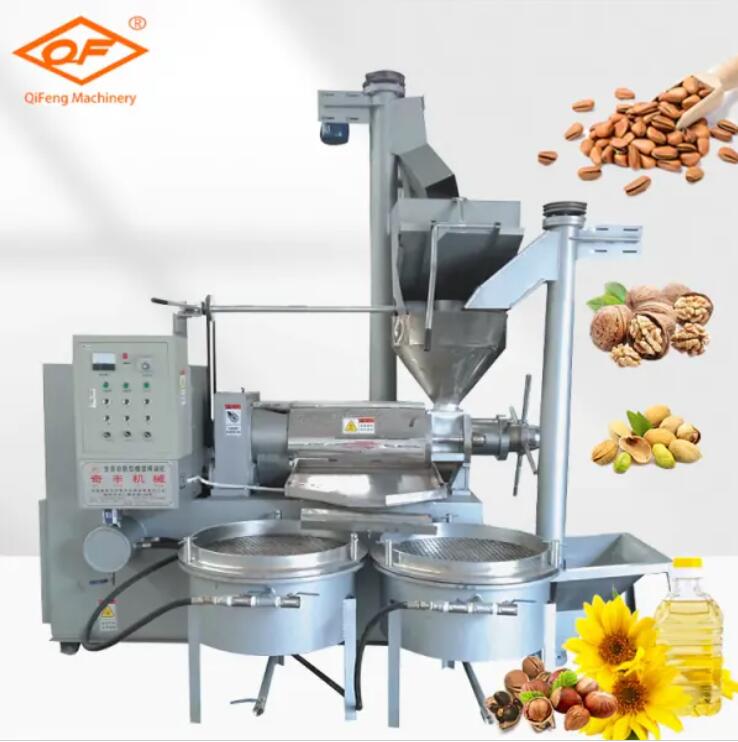Choosing the Best Oil Press Machine: Factors to Consider
In the realm of culinary and health-conscious lifestyles, the extraction of natural oils from seeds and nuts has gained immense popularity. Whether you're an avid home cook, a health enthusiast, or even a small-scale entrepreneur, investing in the right oil press machine can open the door to creating your own flavorful and nutritious oils. However, the market offers a plethora of options, each boasting unique features and specifications. To navigate this sea of choices effectively, it's crucial to understand the key factors that should influence your decision. In this article, we delve into the considerations that will guide you toward selecting the best oil press machine for your needs.

1. Capacity and Yield:
The first and perhaps most essential factor to consider is the capacity of the oil press machine and the oil yield it can deliver. The capacity refers to the amount of raw material the machine can process at a given time. If you plan on using the machine for small-scale home use, a lower capacity machine might suffice. However, if you're looking to produce oils for commercial purposes, opting for a machine with a higher capacity is advisable.
Similarly, the oil yield is a critical metric. A machine with a higher oil extraction efficiency will yield more oil from the same amount of raw material. Be sure to explore the specifications and reviews of different machines to determine their performance in terms of oil yield.
2. Type of Seeds and Nuts:
The diversity of seeds and nuts you intend to process will significantly impact your choice of oil press machine. Different machines are designed to handle specific types of raw materials. Some machines excel at extracting oil from certain seeds, while others are more versatile and can handle a broader range of ingredients.
Before making a decision, identify the primary seeds and nuts you plan to use and ensure that the machine you're considering is compatible with them. Look for machines that offer interchangeable processing chambers or settings to accommodate different types of raw materials.
3. Oil Quality and Purity:
The quality and purity of the extracted oil are of utmost importance. The best oil press machines prioritize preserving the nutritional value, flavor, and aroma of the oils. Machines that utilize cold-pressing technology are often favored as they generate minimal heat during the extraction process. Heat can lead to degradation of the oil's quality, impacting both taste and nutritional content.
When evaluating machines, consider the design features that contribute to maintaining oil quality, such as low-temperature operation and minimal exposure to oxygen and light.
4. Ease of Use and Cleaning:
The usability of the oil press machine is a practical consideration, especially if you plan to use it frequently. Look for machines with user-friendly interfaces, clear instructions, and straightforward controls. Additionally, a machine that is easy to assemble, disassemble, and clean will save you time and effort in the long run.
Some machines come with self-cleaning mechanisms or removable parts that are dishwasher-safe. These features simplify the maintenance process and ensure that the machine remains hygienic after each use.
5. Durability and Build Quality:
Investing in an oil press machine is a long-term commitment. Therefore, durability and build quality are crucial factors to assess. Look for machines constructed from high-quality materials, such as stainless steel or food-grade materials. These materials not only contribute to the machine's longevity but also ensure that the extracted oil remains safe for consumption.
Additionally, consider the reputation of the manufacturer or brand. Reading customer reviews and seeking recommendations can provide insights into the machine's overall build quality and durability.
6. Noise Level:
The noise produced by an oil press machine can vary significantly depending on its design and motor. If noise is a concern for you, especially in a home setting, opt for machines that emphasize quiet operation. Some manufacturers provide information about the noise levels of their machines, allowing you to make an informed decision based on your preferences.
7. Price and Budget:
As with any purchase, your budget will play a pivotal role in your decision-making process. Oil press machines come in a wide range of price points, reflecting differences in capacity, features, and quality. It's important to strike a balance between your budget and your requirements.
While it's tempting to opt for the most affordable option, keep in mind that a higher-quality machine may offer better performance, durability, and oil extraction efficiency. Consider your long-term goals and the value that the machine will bring to your culinary or business endeavors.
8. Warranty and Customer Support:
A reliable warranty and customer support system can provide peace of mind when purchasing an oil press machine. Look for machines that come with a reasonable warranty period, as this indicates the manufacturer's confidence in the product's quality and performance.
Additionally, inquire about the availability of customer support, spare parts, and maintenance services. A responsive customer support team can assist you in troubleshooting issues and addressing any concerns that may arise during the machine's usage.
Conclusion:
Selecting the best oil press machine is a decision that requires careful consideration of various factors. By evaluating factors such as capacity, compatibility with seeds and nuts, oil quality, ease of use, durability, noise level, budget, and warranty, you can make an informed choice that aligns with your needs and goals. Remember that the right machine will not only produce high-quality oils but also enhance your culinary creations or business ventures.




Comments
Please Join Us to post.
0